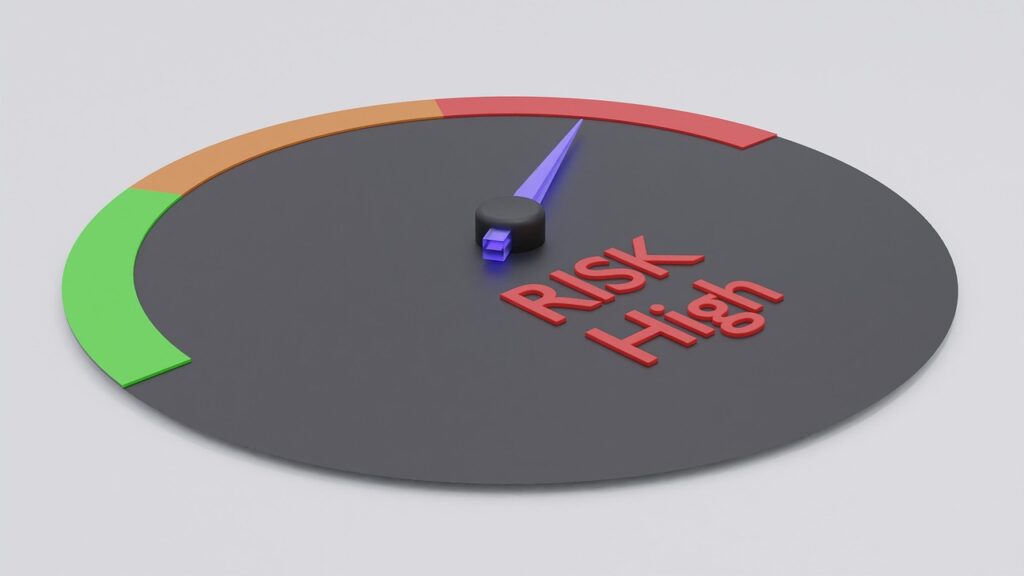
Hollywood’s dazzling lights and the dream of stardom draw countless aspiring actors, eager to make their mark on the silver screen. It’s a world brimming with creative energy, excitement, and unparalleled opportunities. Yet, beneath this glamorous surface, the industry also harbors a complex web of challenges, including insidious pitfalls and individuals eager to capitalize on raw ambition and hopeful dreams. It’s an incredible career, but also one filled with a fair share of shady people trying to take advantage of hopeful performers.
Navigating this intricate landscape requires more than just talent; it demands acute awareness and a discerning eye. The journey to becoming a working actor is often depicted as serendipitous, filled with “discovery” stories like Charlize Theron in a bank or Chris Pratt waiting tables. While these anecdotes fuel the fantasy, for the vast majority, success hinges on diligent effort, strategic choices, and, critically, the ability to differentiate legitimate pathways from deceptive schemes. Knowing how to spot these red flags can save you time, money, and a whole lot of stress.
This in-depth look, drawing insights from industry veterans and professionals, aims to equip aspiring and seasoned performers alike with the crucial knowledge needed to safeguard their careers. We’re about to delve into the most prevalent “red flags” that, if ignored, can not only stall a burgeoning career but also lead to significant financial and emotional distress. Understanding these warning signs is the first, most vital step toward building a resilient and successful acting journey in Hollywood, ensuring you move forward, not backward.
1. **The Peril of Upfront Fees**
A fundamental truth in the entertainment industry, reiterated by seasoned professionals like Sunmin Oh, a 2021 Toronto Film School graduate, is unequivocal: “Never, ever, ever pay to be part of an agency. A legitimate one will never ask for money upfront. When you make money, they make money.” This principle forms the cornerstone of ethical representation. True talent agents and managers earn their living when their clients book paid acting jobs, typically taking a percentage (often 10-15%) of the actor’s earnings, not by charging registration fees or “starter packages.”
Scammers, however, leverage the intoxicating dream of stardom to exploit hopeful actors. Their typical setup often involves an initial “audition” where aspiring talents are lauded for their potential, only to be presented with “The Package” – a non-negotiable bundle of headshots, acting lessons, “exclusive” casting opportunities, and representation, often costing upwards of $2,500, or even $4,995. These are direct revenue streams for the “agency,” with little to no actual benefit to the actor.
It’s crucial to understand that these upfront demands are a massive red flag. Legitimate agents, if genuinely interested in representing you, might recommend reputable headshot photographers, suggest trusted casting websites, or advise on acting classes. However, these are external services you arrange and pay for yourself, with starting costs typically under $1,000, not thousands demanded by the agency itself. The distinction is vital: a real agent facilitates, a scammer charges for access.
Read more about: Navigating the Super Bowl’s Deceptive Currents: A Comprehensive Guide to Identifying and Avoiding Scams

2. **Advertising as a Red Flag**
The way an agency seeks talent speaks volumes about its legitimacy. Legitimate talent agencies do not rely on aggressive, broad advertising campaigns. You won’t find them running TV commercials, placing print ads, or holding open auditions in shopping malls with promises of instant stardom. Instead, they often post detailed submission instructions on their websites or social media, or rely on referrals and industry connections.
Conversely, agencies that heavily advertise, especially with general calls to “Want to be a star? Come audition!” for “XYZ Talent and Model Agency,” should immediately raise suspicion. These tactics are a hallmark of operations looking to cast a wide net, preying on the naive and uninformed. They are overly interested in anyone who walks through their door, regardless of actual talent or experience, because their business model isn’t built on booking actors, but on selling packages.
Sunmin Oh’s experience underscores this point, as her agent was recommended by a fellow actor, illustrating the organic, industry-driven way reputable connections are often formed. Similarly, Orville Cummings, an acting graduate cast in *Star Trek: Discovery*, also found a better fit without relying on advertised agencies. These personal referrals and professional networks are the lifeblood of legitimate talent acquisition, starkly contrasting the mass-marketing tactics of fraudulent entities.
Read more about: Nightmare in the Driveway: 10 SUVs Dealers Say They Can’t Move Due to Lingering Issues

3. **Vague Answers and Lack of Transparency**
When interacting with a prospective agent or agency, transparency and clear communication are non-negotiable. As Sunmin advises, actors should “Ask lots of questions about who they are (the agent), why they are an agent, their experience in the industry, the contract, their roster—be specific.” If an agent provides vague, evasive, or unclear responses to these fundamental inquiries, it signals a significant red flag. A legitimate professional will be open, honest, and forthcoming about their work and the industry.
This openness fosters a crucial trusting relationship between an actor and agent. Sunmin praises her agent, Tammy from SoHo Management, for being “very personable and so easy to chat with. She is understanding, honest and open about her work and the industry.” This kind of clear, direct communication is invaluable. If an agent is unwilling or unable to provide straightforward answers, it suggests they may have something to hide, or their operations lack the professionalism required for genuine representation.
Furthermore, asking around and, if possible, speaking with other actors represented by the agency can provide invaluable insight. Their experiences can offer a realistic picture of what to expect as a client. Orville Cummings notes the importance of an agency that “invests in their clients, and respects them in a way that makes it seem more like a team than a hierarchy,” a sentiment unlikely to be found with an agent who sidesteps direct questions.
Read more about: Investigating Car Wash Subscriptions: Uncovering Hidden Fees and Cancellation Nightmares

4. **The Absence of a Written Contract or Pressure to Sign Immediately**
A written contract is not merely a formality; it is a critical safeguard for both the actor and the agency, clearly outlining expectations, responsibilities, and terms of engagement. The absence of a written contract is a significant red flag, as it leaves everything open to interpretation and provides no legal recourse in case of disputes. A legitimate partnership in the entertainment industry is always founded on a clear, documented agreement.
Equally concerning is any pressure from an agent to sign a contract immediately, especially on the same day as an initial meeting, or without adequate time for review. Scammers often employ “high-pressure tactics” to coerce aspiring actors into making impulsive decisions, sometimes luring them with immediate “audition opportunities this week.” This urgency is designed to prevent thoughtful consideration and thorough research, including seeking legal advice.
Reputable agents understand the importance of due diligence. They will encourage actors to take their time, review the contract carefully—ideally with an entertainment lawyer—and address any questions or concerns. As the context emphasizes, “Don’t sign any contract before fully reading all of it, including the fine print.” If an agent tries to talk you out of legal review or gives tight deadlines, it is a clear indication of a “shady” operation.
Read more about: Investigating Car Wash Subscriptions: Uncovering Hidden Fees and Cancellation Nightmares
5. **Agents Who Aren’t Truly Invested**
Beyond the financial arrangements, the emotional and professional investment an agent makes in an actor’s career is paramount. A truly effective agent is akin to a partner, someone “caring and supporting, makes you feel like you’re being heard,” as Orville Cummings describes his agent, Maria of Edna Talent Management. This level of engagement means an agent is actively working to understand an actor’s unique strengths and long-term goals.
Conversely, a significant red flag is an agent who appears to be “just not that into you” – meaning they are primarily interested in exploiting your immediate earning potential rather than cultivating a sustainable career. Such agents might “box you in and keep you as a niche actor, only doing commercials and other typecast roles,” preventing you from exploring your full range and limiting your growth. This approach serves the agent’s short-term financial gain over the actor’s long-term artistic development.
Sunmin Oh’s agent, Tammy from SoHo Management, exemplifies the ideal, as she “doesn’t pigeonhole/typecast me and instead in the beginning, submitted me to all types of roles to get a better sense of how casting sees me.” This proactive, exploratory approach demonstrates a genuine investment in the actor’s trajectory. If an agent isn’t inquiring about your aspirations, exploring diverse opportunities, or showing a personal commitment to your career evolution, it’s a telling sign to re-evaluate the partnership.
Read more about: 14 Totally Rad ’80s Movies That Were Brilliant But Are Still Flying Under the Radar

6. **Pay-to-Play Auditions**
One of the most blatant and persistent scams targeting aspiring actors is the “pay-to-play audition.” This scheme involves asking actors to pay a fee simply to be considered for a role or to attend a casting call. The context unequivocally states that “Legitimate auditions should not require you to pay money upfront (or ever) to be considered.” Your talent and skills are your currency in the legitimate acting world, not your wallet.
These fraudulent auditions often present themselves as exclusive opportunities or “guaranteed callbacks,” preying on an actor’s eagerness and hope. They might operate under the guise of an “agency” that then loops you into their business model of profiting off hopeful actors. The reality is that “a legitimate casting call does not require you to pay for a spot, a ‘guaranteed callback,’ or to audition on their platform.”
The fix for this is straightforward: “Stick to reputable casting sites like Actors Access, Backstage, Casting Networks, or agency submissions.” These platforms facilitate legitimate opportunities, where casting directors review submissions based on merit, not payment. If any job or “agency” asks for an audition fee, it is not a real opportunity and should be avoided at all costs, as it taints the reputation of legitimate talent agents and pipelines.
Read more about: Beyond the Callback: 12 Unbelievable Audition Stories That Catapulted These Stars to Fame

7. **The Allure of Guaranteed Stardom**
The promise of “guaranteed stardom” or “overnight success” is arguably the most seductive and dangerous red flag in the entertainment industry. Scammers frequently dangle the prospect of instant fame, high-paying roles, or VIP industry connections in exchange for upfront money or commitment to dubious schemes. These “unrealistic promises of instant fame are often a red flag for potential scams,” as true success in acting is the product of immense hard work, dedication, rigorous training, and inherent talent.
Even the most well-connected and respected agents cannot guarantee an actor will book a specific role, let alone achieve instant stardom. Legitimate agents focus their efforts on diligently submitting clients for appropriate roles, providing guidance, and fostering career development. Their value lies in their industry access and strategic counsel, not in making extravagant, unfulfillable pledges. If an agent or “agency” is making big, flashy guarantees, they are almost certainly “trying to lure you into an expensive contract” or a deceptive scheme.
The industry’s reality is a journey, not a sprint. Becoming a professional actor demands time, perseverance, and continuous skill refinement. Offers that sound “too good to be true” — such as being told you’ve got “raw talent” and they “see star potential in you” right after a superficial audition, followed by a demand for payment for a “package” — are almost certainly predatory. True opportunities will align with the demanding, yet rewarding, path of genuine artistic development and professional growth.
Now, let’s continue our deep dive into the more subtle, yet equally dangerous, traps that can derail an actor’s journey in Hollywood. The path to success is rarely straightforward, and vigilance extends far beyond the initial handshake. Understanding these deeper contractual nuances and on-set realities is paramount for safeguarding your career and ensuring your artistic aspirations are built on a solid, legitimate foundation.
Read more about: Beyond the Cape: Unpacking Why Hollywood’s A-Listers Are Saying ‘No’ to Superhero Franchises

8. **Deceptive Contract Clauses: Beyond the Signature**
While the absence of a contract is a major red flag, a written agreement is not automatically a guarantee of fairness. Actors must delve into the specifics of what they are asked to sign, as hidden clauses or non-standard terms can severely impact their career trajectory. A common industry standard for agent-talent contracts in the working actor arena is typically a one-year term. Anything extending beyond this period, such as a multi-year commitment, should immediately raise questions and warrant thorough investigation. An agent proposing a longer term must provide clear, compelling reasons, and actors should feel empowered to request a standard one-year contract if they are uncomfortable with extended commitments.
Equally critical is a meticulous review of all payment clauses. The entertainment industry has established commission rate standards, with 10% on earnings from jobs the agent was involved with booking being the SAG-AFTRA benchmark. Any clause specifying a commission rate above 20% should be considered “SHADY” and a significant red flag. This isn’t just about financial loss; it reflects an agent’s potentially exploitative business model. Additionally, be intensely wary of any contract language that attempts to levy fees or upfront costs disguised as administrative charges or “all-inclusive” packages for signing with the agency. These practices are emphatically not indicative of well-respected talent agencies.
Furthermore, actors must be absolutely clear on the grounds for contract termination. A legitimate contract will clearly define the conditions under which either party—the actor or the agent—can end the partnership. This includes specified timeframes, required communication specifics, and any necessary proof. It’s vital that these terms are reasonable and transparent, ensuring an actor can exit the agreement without navigating “a million stressful hoops” if the partnership proves unproductive or problematic. Empowering yourself with this knowledge before signing is crucial, as it provides a pathway out should the professional relationship falter or cease to serve your best interests.

9. **The Price of “Discovery”: Exclusive Paid Showcases and Pyramid Schemes**
The dream of being “discovered” can lead aspiring actors down costly, unproductive paths, particularly when confronted with “exclusive” paid showcases or training programs. These schemes often present themselves as unique opportunities for actors to gain exposure to casting directors, producers, or agents, promising that attendance—for a steep price, of course—will lead to discovery. While legitimate training and networking events exist, the key differentiator here is the *guarantee* of being cast or “discovered.” If an event promises such an outcome, it’s almost certainly “a cash grab,” designed to profit from an actor’s aspirations rather than genuinely advance their career.
Beyond direct showcases, some operations morph into pyramid schemes disguised as acting workshops or schools. These programs might genuinely offer some form of training but then pressure participants to recruit more actors to join, with the original members profiting from these new enrollment fees. While recommending fellow actor friends to beneficial resources is a natural part of networking, feeling “coerced or pressured” to do so, especially when linked to financial incentives for recruitment, is a stark warning sign. Legitimate acting education focuses on skill development and industry knowledge, not on building a multi-level marketing structure.
The “fix” for these enticements lies in diligent research. While a well-respected acting coach or school can provide immense value, their reputation is built on the quality of their instruction and the genuine advancement of their students, not on guarantees of fame or recruiting bonuses. Always scrutinize the true intentions behind any “exclusive” opportunity that comes with a hefty price tag. An actor’s focus should remain on developing their craft and building legitimate industry connections organically, rather than paying for what amounts to a lottery ticket dressed up as a career breakthrough.

10. **The Unsolicited Offer: Too Good to Be True?**
Imagine the thrill: an email pops into your inbox, a direct message on social media, or a call out of the blue, offering you a significant role in a project with A-list stars attached, all without you ever having auditioned. This “unsolicited offer” might seem like a dream come true, the serendipitous “discovery” story so many actors fantasize about. However, such offers are almost universally a “red alert” and a significant red flag in the industry. Legitimate casting processes are meticulous, involving auditions, self-tapes, callbacks, and a clear understanding of an actor’s existing work and suitability for a role. An offer that bypasses these fundamental steps should immediately trigger suspicion.
The story of “Henry” from the context perfectly illustrates this pitfall. An actor receives an email directly from a “producer” thrilled with his self-tape for an initial audition (a small supporting role in a “huge movie” with A-list stars), inviting him to an in-person callback in Los Angeles. The insidious part? Vague wording about arranging a flight, but asking for Henry’s credit card information for reimbursement later. This specific detail – demanding credit card info for a supposed reimbursement – is a classic predatory tactic designed to gain access to personal financial data. A legitimate production would directly handle travel arrangements or provide clear, upfront payment for expenses without requiring an actor’s personal card for initial booking.
When faced with an unsolicited offer, the crucial step is to “Research the project.” Look for tangible evidence: an IMDb page for the production company or project, a verifiable track record of past work, or credible news about the film. If the “company” or “producer” cannot be verified through standard industry channels, or if the details are vague and inconsistent, it’s a clear signal to “don’t engage.” Trusting your gut instincts is paramount here; if an offer sounds “too good to be true,” especially one that bypasses traditional auditioning and makes questionable financial requests, it almost certainly is a scam designed to exploit your ambition.

11. **Navigating the Set: Red Flags in Working Conditions**
The excitement of landing a role can sometimes overshadow critical assessment of the working environment, but red flags on set can be as detrimental to a career as predatory agents. One immediate warning sign is a production that “refuses to give you a contract” or insists on paying you “under the table.” A contract is not just a formality; it’s a fundamental safeguard outlining your role, responsibilities, pay rate, schedule, and intellectual property rights. Without it, you lack legal recourse for disputes, unpaid wages, or credit issues. If a production dodges questions about payment schedules or paperwork, it’s a massive red flag, and the advice is unequivocal: “If they won’t provide one, don’t take the job.”
Beyond contractual clarity, the presence—or absence—of proper human resources (HR) and safety protocols speaks volumes about a production’s legitimacy and professionalism. Legitimate productions, whether union or non-union, are expected to have “clear policies on safety, harassment, and working conditions.” This includes adherence to industry safety standards, mechanisms for reporting harassment, and a generally organized, respectful atmosphere. If a set feels chaotic, disorganized, or, critically, “unsafe,” actors must “trust your gut.” An environment lacking basic safety measures or clear reporting channels for issues is not only unprofessional but can also pose genuine physical and psychological risks.
Another concerning practice is the incremental expectation of “unpaid work beyond what was agreed upon.” Some productions may start professionally, adhering to initial agreements, but then gradually begin to ask actors to work for free, take on extra, uncompensated responsibilities, or “do this one thing as a favor.” This erosion of professional boundaries and fair compensation is a subtle but potent red flag. Actors must “Know your worth.” Your time and talent are valuable, and if a production continually pushes these boundaries, it signals a lack of respect for your professionalism and ultimately, it’s “time to walk away.” A healthy working relationship is built on mutual respect and clearly defined compensation for all efforts.
Read more about: Pushing Boundaries: 12 Transformative Features Defining the iPhone 16 Pro and Pro Max Experience
12. **The Headshot Hustle: Photography Kickbacks**
Headshots are an indispensable tool in an actor’s arsenal, serving as their visual calling card in the industry. However, even this essential requirement can become a conduit for exploitation through “photography kickbacks.” This scam involves an “unscrupulous agent” who makes representation conditional upon an actor hiring a specific photographer, often implying that this particular photographer is the *only* one whose work meets their “high standards.” The underlying truth is that these agents are “typically getting a big fat cut back (a percentage of what you paid the photographer),” turning a necessary expense for the actor into a profit center for the agent.
While a legitimate agent might “refer you to their favorite photographers,” based on a professional understanding of their client’s needs and the photographer’s style, this referral should never be a “determining factor on if an agent or manager will represent you or not.” The choice of photographer should ultimately “be up to you,” allowing actors to select a professional whose style aligns with their brand and budget, and who they feel comfortable working with. Any agent who insists on a particular photographer, especially if they are dismissive of your existing, high-quality headshots or pressure you into an expensive session with their chosen vendor, is displaying a clear red flag.
This tactic preys on an actor’s desire for representation, leveraging a critical career tool into a deceptive financial transaction. It’s a subtle form of the “upfront fees” scam, repackaged. Actors should approach headshot recommendations with a discerning eye. Inquire about multiple photographers, compare portfolios and pricing, and never let the choice of photographer dictate your representation. A truly invested agent will prioritize your talent and marketability, trusting your judgment in acquiring professional materials, rather than mandating a specific, financially beneficial arrangement for themselves.

13. **Building Your Shield: Essential Protection Strategies**
Navigating the complex waters of the entertainment industry demands more than just talent; it requires a proactive approach to self-protection. The most fundamental strategy is to “Do Your Research.” This means extensively Googling company names, agent credentials, and past productions. If something “feels off, trust your gut.” Utilize resources like the SAG/AFTRA website to verify the legitimacy of any company or agent you are considering. This investigative diligence is your first line of defense against scams and unethical practices, ensuring you’re engaging with credible professionals.
Beyond individual research, “Join Industry Groups” and build a robust network. Organizations like SAG-AFTRA, along with online communities such as acting Facebook groups and Reddit forums, serve as invaluable resources. These platforms not only offer a wealth of insider knowledge but also facilitate shared experiences, helping actors “expose scams” and identify red flags more quickly. Similarly, “Ask Other Actors.” Your peers are often your greatest resource for understanding what’s legitimate and what’s not, providing firsthand accounts and warnings about suspicious opportunities or individuals. Collective knowledge is a powerful shield against exploitation.
Finally, empower yourself with legal and intuitive safeguards. “Have an Entertainment Lawyer on Call” – especially when it comes to reviewing contracts for agents, managers, or major roles. Investing in legal counsel, even for a brief consultation, can save you significant financial and emotional distress down the line. Most importantly, “Trust Your Instincts.” If an opportunity feels rushed, shady, or simply “too good to be true,” the wisest course of action is to “walk away.” A legitimate acting career should consistently move you forward, not deplete your resources or erode your self-worth. Staying smart and safe is the ultimate strategy for success.
Read more about: Earth’s Shield: Unraveling the Stories of the Ozone Hole and a Global Rescue Mission
14. **Final Thoughts: Staying Vigilant on Your Path to Stardom**
The journey to becoming a working actor is undeniably exhilarating, filled with the promise of creative fulfillment and widespread recognition. Yet, as we’ve explored, this vibrant industry also harbors a darker side, populated by those who seek to exploit ambition and hope. The key to thriving in this environment isn’t just about possessing talent or charisma; it’s about cultivating a sharp awareness, an unyielding skepticism, and a steadfast commitment to protecting your professional integrity. Every “red flag” we’ve discussed, from upfront fees to the insidious lure of “guaranteed stardom” and the subtle dangers of predatory contracts or unsafe sets, serves as a crucial lesson in discernment.
Remember the golden rule that underpins all others: “If it sounds too good to be true, it probably isn’t for you!” This simple adage, combined with diligent research, robust networking, and the courage to walk away from anything that feels off, will serve as your most powerful armor. The legitimate path to success in Hollywood is built on hard work, genuine talent, continuous training, and strategic, ethical partnerships. It’s a journey of perseverance, not instant gratification. By understanding these pitfalls, you empower yourself to navigate the complexities with confidence, ensuring that your focus remains squarely on developing your craft and building a sustainable, fulfilling career.
So, go forth, aspiring stars, armed with this crucial knowledge. Stay informed, stay cautious, and above all, stay true to your worth. Your acting dreams are precious, and by diligently watching out for these industry “wolves in sheep’s clothing,” you can protect them, allowing your light to shine brightly and authentically on the stage, screen, and beyond. The acting world offers incredible opportunities, but your active participation in safeguarding your journey is the ultimate determinant of a career that truly moves you forward.





:max_bytes(150000):strip_icc():focal(711x326:713x328)/joanna-carson-johnny-carson-080425-ef84ab9a5fe74660a30098f00c611f2b.jpg)

